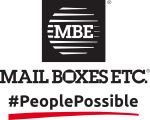
_100_100.jpg)









Companies to consider
-

12th Street Burgers
12th Street Burgers are an American-themed casual dining restaurant offering burgers, chicken, and shakes to customers...
View Profile -

PACK & SEND
National and international specialist packaging and delivery company
View Profile -

Lucky Voice Franchise
Lucky Voice is a premium UK karaoke franchise, redefining social singing with private, themed rooms, curated playlists,...
View Profile -

Aspray Limited
Aspray is an award-winning claims management provider that has developed into a successful franchise
View Profile -

Wraps & Wings Franchise
Wraps & Wings franchisees benefit from being awarded several delivery-only brands covering breakfast, lunch and...
View Profile -

Strike Back Self Defence Franchise
Strike Back Self Defence is the world’s largest all-female self-defence organisation, founded by Gulshen Bano with a...
View Profile -

Certax Accounting
Certax Accounting has offered accountancy and taxation services since 1999. It’s since grown into one of the...
View Profile -

Explorer Franchise by Hays Travel
provides franchisees with the chance to work in the travel industry on their own schedule
View Profile -

No Letting Go
No Letting Go provides a variety of property management services, including landlord inventory, tenant inventory and...
View Profile -

Chicken Cottage
The go-to quick service outlet for the world’s most flavoursome grilled and fried chicken and succulent sides
View Profile -

Canopy Children’s Nurseries
Passionate about giving children the best possible beginnings
View Profile -

Super Star Sport Franchise
Super Star Sport is a children’s sports coaching company working with primary schools, nurseries and parents. The...
View Profile -

Wok to Walk
Founded in 2004, Wok to Walk operates over 100 sites in 18 countries and can be found in iconic urban locations such as...
View Profile -

Auntie Anne’s
Auntie Anne’s is known for its freshly baked, soft, straight-out-of-the-oven pretzels in a variety of sweet and...
View Profile -

Local Eats Ireland
Run your own online food ordering service with minimal hassle yet with maximum return
View Profile -

Paris Baguette
Provide fresh baked goods and coffee to the community
View Profile -

The Seasons Art Class
Rewarding, Profitable, Part-Time Business
View Profile -

it’seeze Franchise
Sell the world’s fastest websites. Build recurring income. Run your own digital business
View Profile -

Leaflet Delivery UK Franchise
Leaflet Delivery UK is a franchise to become a Royal Mail authorised reseller of their door-to-door leaflet delivery...
View Profile -

Fun Fest for Children
Offers a range of different childcare and children’s services franchise systems
View Profile -

Numi Scan
Leading provider of ultrasound scans across the UK
View Profile -

Nurse Next Door Franchise
Delivers compassionate, personalised care to seniors across England
View Profile -

ActionCOACH UK
CompareTheFinancialMarkets.com UK Business Opportunity of The Year offers the chance to join the 2nd fastest growing...
View Profile -

Henry Sykes Auctions Franchise
Welcome to the Henry Sykes Property Franchise An exciting, scalable, and potentially multi-million-pound business...
View Profile -

Let Correct Franchise
Let Correct is the UK’s first franchise brand entirely dedicated to the lettings market. While many others attempt to...
View Profile -

URBAN Fresh Burgers & Fries
A BFA-accredited brand with a cult following in South Yorkshire, URBAN Fresh Burgers & Fries is all about fresh,...
View Profile -

Prestige Nursing & Care Franchise
Discover a rewarding franchise opportunity with Prestige Nursing & Care, a leader in specialist care services for...
View Profile -

Side Street Franchise
Born in lockdown, Side Street launched in 2020 to meet a rising demand for bold, flavour-packed food delivered fast....
View Profile -

NLP4Kids Franchise
NLP4Kids is a pioneering children’s franchise specialising in NLP, coaching, and hypnotherapy techniques designed to...
View Profile -

RE:SCULPT Franchise
RE:SCULPT is described as the UK’s fiercest reformer Pilates-inspired strength workout. At its heart is a unique...
View Profile -

Post & Packing
Post & Packing is your very own walk-in mailroom, for retail and business customers alike. As an independent postal...
View Profile -

The Travel Franchise
Start your own home-based travel agency
View Profile -

Platinum Property Partners
The world’s first property investment franchise, based on a lucrative professional HMO model
View Profile -

Spud Bros Express
Spud Bros Express is a fast-food franchise that offers its customers a modern twist on the classic baked potato. Since...
View Profile -

Caremark Franchise
One of the UK’s largest and most established home care franchisors, helping thousands of people stay independent in...
View Profile -

Walfinch
Provides live-in and visiting-hourly carers to a wide range of clients, including older people
View Profile -

Kaspa’s Desserts
Delicious desserts in a fun and exciting environment
View Profile -

What’s On In Franchise
The perfect online, home-based business, looking for single, master or corporate franchisees. A UK market that is worth...
View Profile -

UK Business Mentoring Group
The UK Business Mentoring Group’s franchise model is designed for flexibility. You decide when and how you work....
View Profile -

Miss Millie’s Franchise
A well-established brand in the West Country, recently under new ownership, Miss Millie’s is definitely not an...
View Profile -

The Spitting Pig Company Franchise
Become part of the UK’s leading hog roast brand
View Profile -

The Fat Pizza
Customers at The Fat Pizza believe it has the best delivered pizza around. Whilst consumers may order weekly from other...
View Profile -

CyberGlobal
CyberGlobal is a certified cybersecurity franchise designed for individuals with a passion for sales, business...
View Profile -

Local Eats
Run your own online food ordering service with minimal hassle yet with maximum return
View Profile -

Black Rooster Franchise
Scotland’s fastest-growing Peri Peri brand
View Profile -

Mail Boxes Etc.
A multi-functional retail and B2B operator offering post, parcel, print, and virtual office address services for a...
View Profile -

Kiddleydivey Franchise
Kiddleydivey is a unique franchise that brings music, fun, and care into a rewarding business opportunity. It delivers...
View Profile -

Countrywide Signs Franchise
An estate and letting agents board contractor, responsible for erecting and maintaining property signs
View Profile -

CareYourWay
Multi-award-winning family-run care franchise that specialises in person-centred, outstanding care at home
View Profile -

Muscleworks Gym
Muscleworks Gym is a premium fitness franchise that caters to serious bodybuilders and general fitness enthusiasts....
View Profile -

Gourmet Sushi
Gourmet Sushi was founded in October 2016 in the heart of London by Nuriddin Shamsutdinov. With more than ten years of...
View Profile -

Fat Phill’s
Since launching in 2019, Fat Phill’s has become best known for its smash burgers, loaded sandwiches, Philly...
View Profile -

Emma Franchise
A global leader in sleep technology, offering award-winning products in over 20 countries
View Profile -

World Options
Offers an easy to use, web-based courier and shipping service for businesses of all sizes
View Profile -

Yolé
Yolé is an award-winning dessert brand creating zero dairy, zero sugar-added ice cream and zero sugar-added frozen...
View Profile -

Chop & Wok
A wok-based restaurant and takeaway business that serves Pan-Asian fusion food
View Profile -

Puncturesafe
Install a British-made product and make a real difference for your customers while generating exceptional profits
View Profile -

My Fit Pod Franchise
In the ever-evolving world of fitness and wellness, My Fit Pod offers an innovative and high-quality alternative to...
View Profile -

Game4Padel Franchise
Game4Padel is the UK’s leading developer and operator of padel clubs, driven by a mission to expand the world’s...
View Profile -

People Building Franchise
People Building is a leading coaching franchise in the UK, specialising in NLP, hypnotherapy, and mindset training for...
View Profile -

Local Shops
Local Shops aims to target the world’s most renowned ecommerce platforms
View Profile
Enquire now from
You have pending
Here's just five reasons why you should join our FREE newsletter!
-
New articles added every week
-
Hand picked franchise opportunities just for you
-
First class help and advice for franchising and business
-
We have the industries best contributors on board
-
Inspiring and insightful franchise case studies
What Franchise Newsletter
Keep up to date with all the industry news